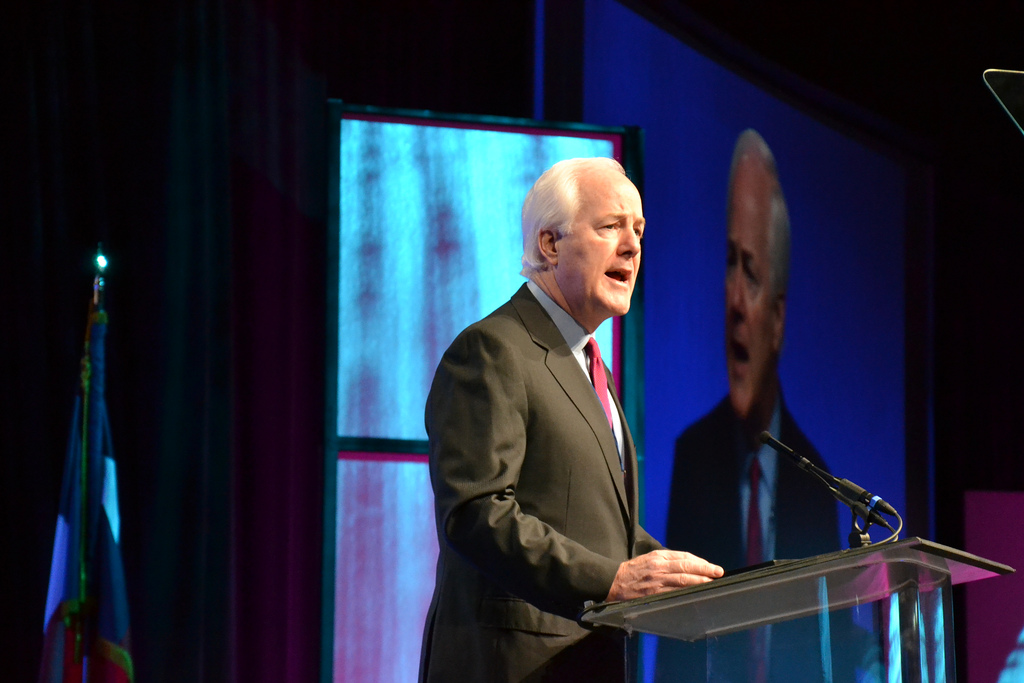
The Trouble with TribTalk

A version of this story ran in the July 2014 issue.
The tens of Texans who’ve been waiting with bated breath to read Republican Congressman Steve “If babies had guns, they wouldn’t be aborted” Stockman’s ever-developing thoughts on the virtual currency Bitcoin finally exhaled in May, when Stockman took to the pixeled pages of The Texas Tribune’s new op-ed offshoot, TribTalk, to chastise the federal government for its “costly, job-killing” approach to taxing the modern libertarian’s favorite legal-ish tender.
TribTalk bills itself as “an op-ed page for the 21st century” and purports to provide “pointed, provocative perspectives” on a wide range of issues affecting Texans.
The site has so far featured columns from Planned Parenthood President Cecile Richards, Republican lieutenant governor candidate Dan Patrick and sitting Lt. Gov. David Dewhurst alongside a host of lesser-known strategists, lobbyists and campaign veterans. Columnists aren’t compensated by the Tribune, though some must certainly be recruited in pursuit of a predictable pairing of counter-perspectives on almost every issue—whether those perspectives are warranted by good sense, good science, or even good conscience.
TribTalk also invites reader submissions and offers “paid placement,” $2,500-a-pop sponsored content marked on the site by a differentiated background color. Plain old ads start at $12,500.
This latest Tribune venture may be a 21st-century op-ed page, but it’s hardly an innovation. It perpetuates a top-down model of discourse that privileges the privileged and lends credibility to the likes of Sen. Ted Cruz, who’s already used TribTalk to decry the influence of “big donors” on energy policy.
In a post-Citizens United America, where the political conversation is increasingly dominated by voices best able to buy the highest-ranking ears, and struggling publications lean on hyped-up headlines and thinly veiled advertorials, TribTalk so far looks like a Huffington Post-wannabe more concerned with clicks than content.
Smart reporting from the Tribune’s hyper-focused beat journalists keeps our state’s storied dailies on their toes, but TribTalk merely engenders horse-race political writing. A verifiable crackpot like LaRouche Democrat Kesha Rogers can enjoy a byline alongside outgoing University of Texas Chancellor Francisco Cigarroa and gubernatorial candidate Wendy Davis.
The obvious rejoinder is that hey, it’s just an op-ed page. The Tribune isn’t endorsing John Cornyn’s laughable support for a racist voter ID law that a federal court declared was expressly intended to disenfranchise minority voters, and TribTalk certainly does publish a bipartisan array of views. And yes, it clearly labels its “paid placement” content.
But the Tribune can’t have it both ways. Either politicos and institutional gatekeepers want to be published in TribTalk because it is valuable media real estate under the imprint of a rising name in Texas journalism, or it’s a free-for-all (er, free-for-some) blog with no editorial oversight and no meaningful connection between its brand and its bylines.
I suspect that the Tribune would like to see TribTalk as the former. Indeed, in its own “paid placement” guidelines, the Tribune reserves the right to “refuse publication of any content that undermines the integrity of its brand.”
TribTalk simultaneously asks too much and expects too little of a readership that appreciates the Tribune’s ostensible non-partisanship. TribTalk lets its deeply biased writers float untethered from political reality in what feels like a bizarre attempt to act as a somehow objective clearinghouse for unbridled partisan posturing. Republican campaign veteran Ray Sullivan is billed as a “political consultant.” Liberal gadfly Harold Cook is identified as a “public affairs consultant.” A couple of clicks will take readers into more detail—Cook is a Democratic commentator and Sullivan worked as a spokesman for Bush-Cheney and later Rick Perry—but there’s no reason not to be more initially forthcoming, particularly on a web platform without the printed page’s space limitations.
If TribTalk wants to be taken seriously, it might start by applying its “paid placement” guidelines to its unpaid content, vetting its submissions more thoughtfully, increasing transparency and soliciting opinions with real teeth, rather than simply curating a click-bait puppet show.
Unless, that is, TribTalk wants to be known as the kind of place readers turn to for Steve Stockman’s thoughts about Bitcoin.


